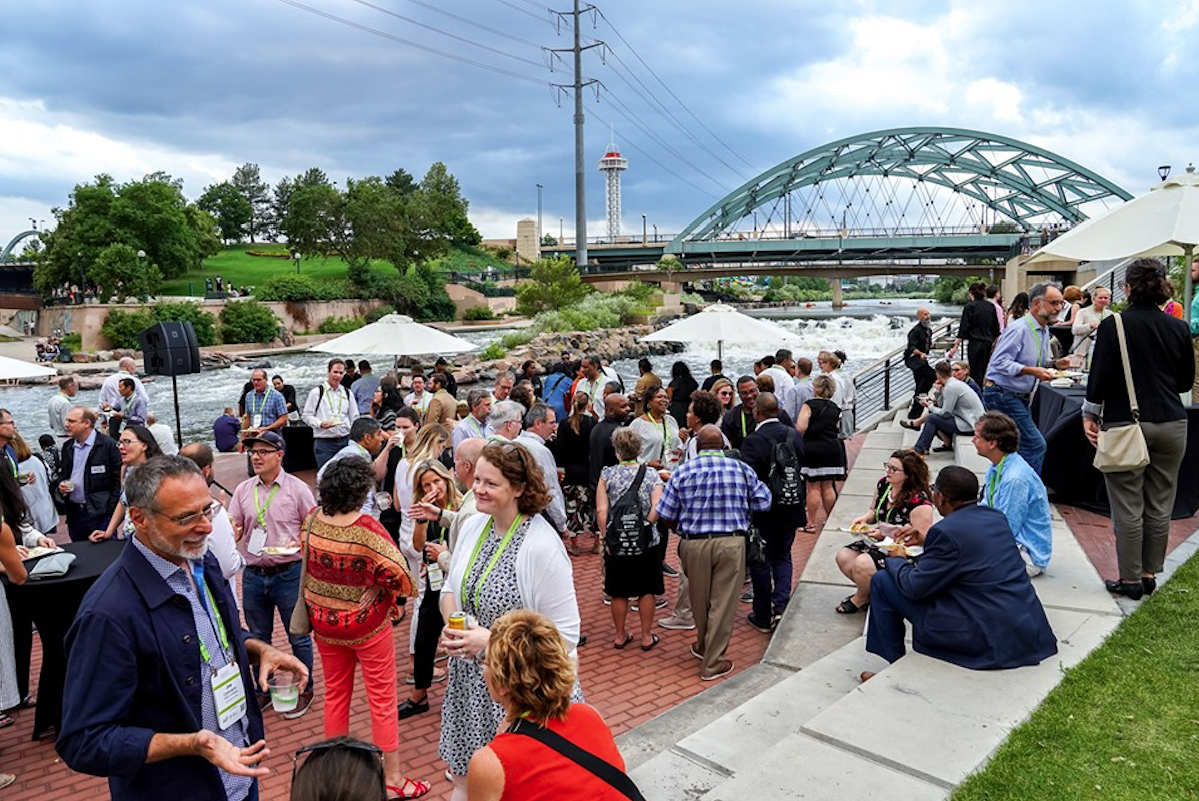This summer I had the opportunity to travel to two national convenings related to parks and the public realm: The inaugural Knight Public Spaces Forum in Philadelphia and City Parks Alliance’s Greater & Greener conference in Denver. Both events drew together park professionals, urban designers, program staff, and nonprofit and foundation leaders to learn from one another and share solutions for the complex set of challenges cities face as we develop the next generation of parks.
From these trips there were several themes – equity, climate resiliency, and community health and well-being, all priorities for the Minneapolis Parks Foundation – that are relevant to Minneapolis and our region.
Equity
Park systems have to be better oriented toward addressing historic racial and economic disparities. Cities have never been more vibrant and attractive places to live. As more people are drawn to urban centers, pressures on housing, affordability, and maintaining neighborhood continuity often push out communities of color and the economic benefits repeatedly leave many long-time community members marginalized. Whereas parks were once seen as a universal good, in many cases new parks become part of a system of investments that displace businesses and residents that at one time were community anchors.
A national model many are looking to is the 11th Street Bridge Park in Washington D.C. Market forces are drastically changing the racial and economic demographics of the District. A community-forged initiative is being developed within a one-mile radius of the visionary elevated park, which will span the Anacostia River. More than $25 million has been committed toward an estimated $50-$55 million initiative that will fund workforce development training, an affordable housing land trust, and small business support for the historically African American neighborhood near the future bridge park. Similar large-scale examples can be found along the L.A. River, the Atlanta Beltline, and The 606 in Chicago.
Climate Resiliency
As density increases and land values in urban centers escalate, every acre of parkland and open space will be enlisted to help mitigate the impacts of climate change on our cities. In Minneapolis, parks are currently a critical part of the climate infrastructure. Designed well, parks can divert and filter rainwater, provide natural cooling through the tree canopy, and even boost alternative energy use through solar energy and non-emission landscape equipment.
In Denver, new parks are coming on-line that consider seasonal flooding, as well as 10-year and 100-year floods. Coordination between the city’s public works and parks department provides the infrastructure to ensure that the rivers and streams that flow through Denver can accommodate the increasing frequency of storm surges that result in flash floods. For many park users, these solutions will be invisible.
Community Health and Well-being
One of the strongest indicators for positive health outcomes is strong relationships with other people in your community. Parks strive to remain a place where everyone is welcome and where we can forge new relationships with neighbors. With 50 recreation centers in Minneapolis Parks, there are endless opportunities to re-imagine how they serve the community.
Two of our recent Sunrise on the Mississippi speakers remain leaders on the national and international stage around this topic of community well-being. Lynn Ross, who spoke last year, is providing a roadmap for building trust and community through parks and leveraging those stronger relationships as a tool for community health, through her work with the Reimagining the Civic Commons initiative being piloted in several cities across America. And Gil Penalosa, our 2015 speaker, continues to inspire city design through 8-80 Cities which promotes the idea that regardless of your age (8 or 80 years old), you should be able to navigate safely through every city. This year’s Sunrise on the Mississippi speaker is climatologist Paul Huttner, who himself is a national thought leader on climate crises and climate resiliency strategies.
Minneapolis remains a model for other cities in many categories and the title of “Best Park System in America” still rings true to many. We have plenty of innovations in Minneapolis we can point to as a national leader. But it is in the exchange of ideas with other cities and the diverse community of park and public realm leaders that can point us in the right direction to ensure our parks continue to improve as our cities improve. Ultimately, better parks serving all comers will keep our region thriving.
—
Featured Image: Park advocates and city leaders from around the country gathered in Denver as part of the Greater & Greener Conference in July. Pictured here is the opening reception at Confluence Park in downtown Denver. Photo courtesy of City Parks Alliance.

